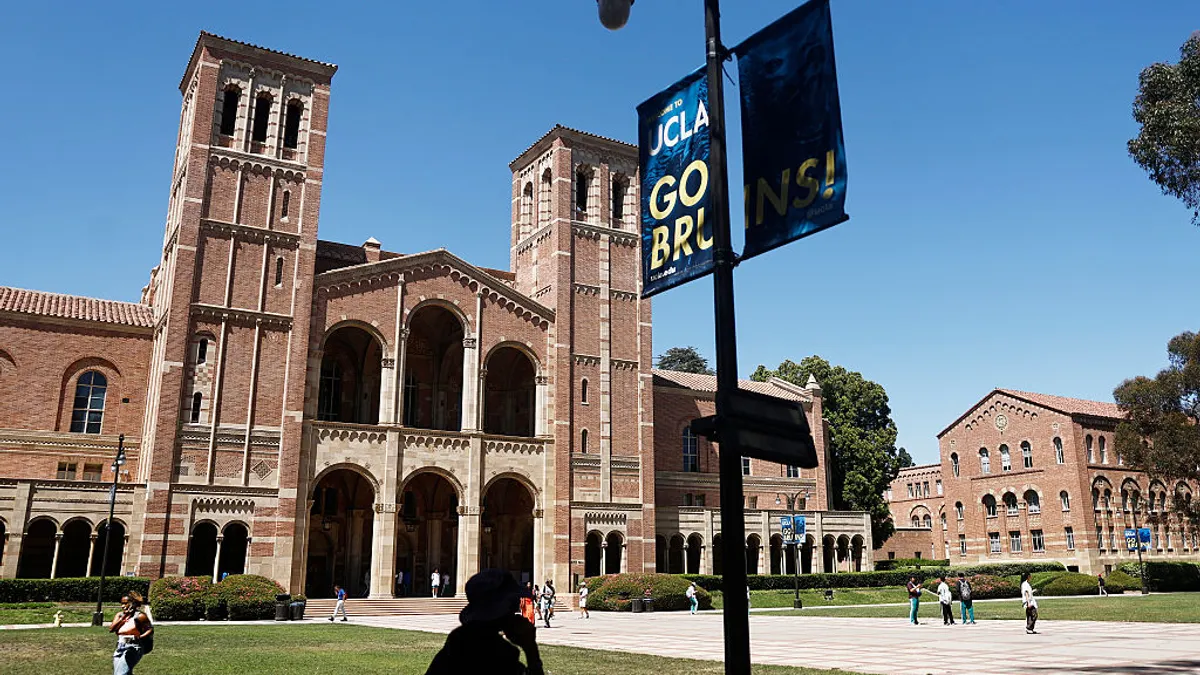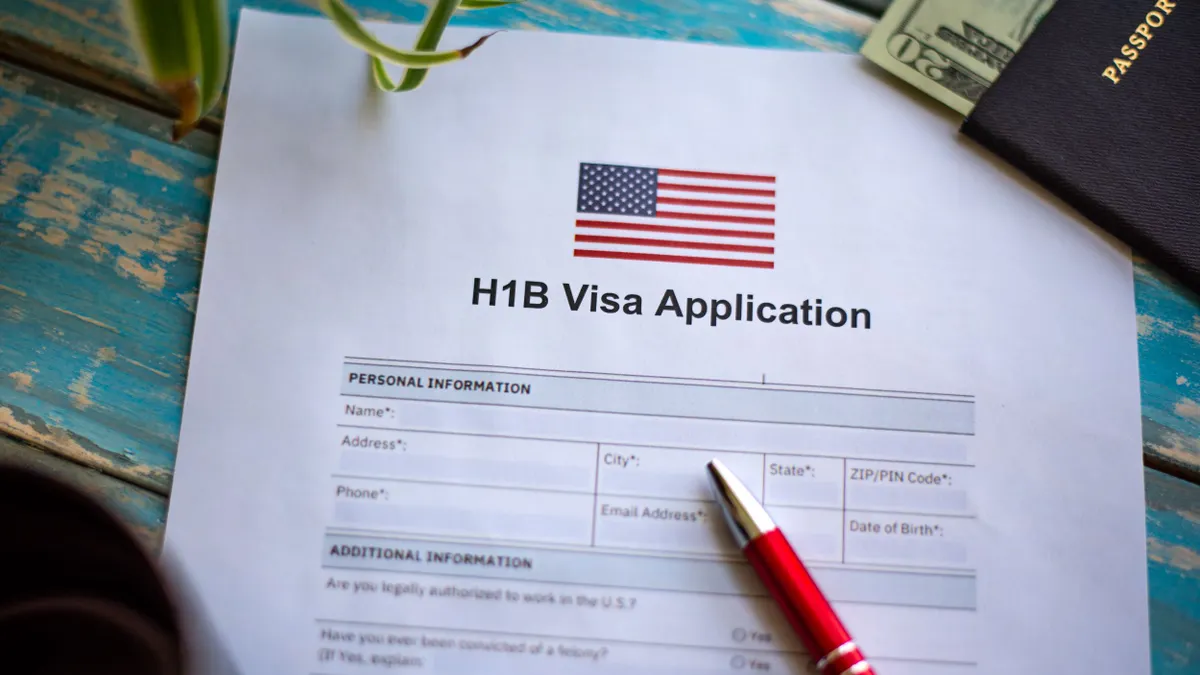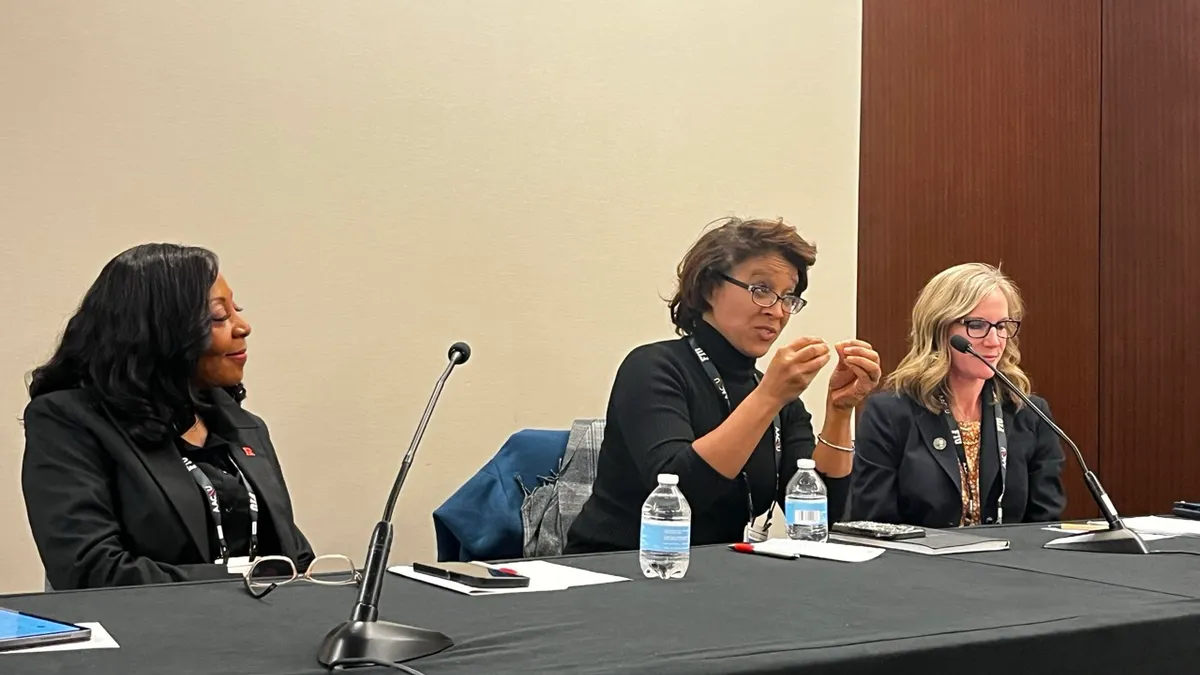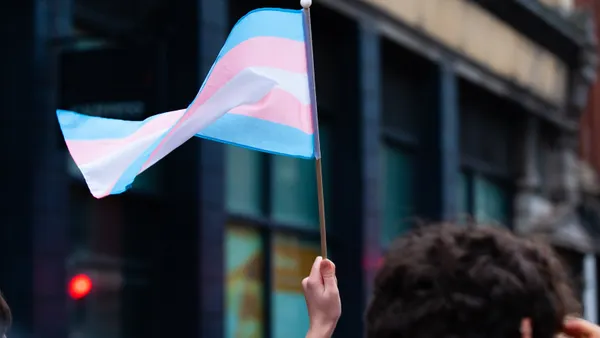Dive Brief:
- A federal judge on Friday issued a preliminary injunction barring the Trump administration from freezing the University of California system's research funding as part of civil rights investigations.
- In a scathing ruling, U.S. District Judge Rita Lin found the administration’s actions unconstitutional, describing “a playbook of initiating civil rights investigations of preeminent universities to justify cutting off federal funding,” with the aim of “forcing them to change their ideological tune.”
- While a lawsuit over the Trump administration’s actions is ongoing, Lin barred the federal government from using civil rights investigations to freeze UC grant money, condition its grants on any measure that would violate recipients’ speech rights, or seek fines and other money from the system.
Dive Insight:
In her ruling, Lin described a “three-stage playbook” that the Trump administration uses to target universities. First, an agency involved with the administration's Task Force to Combat Anti-Semitism announces civil rights investigations or planned enforcement actions. Then, the administration issues mass grants cancellations without following legally mandated administrative procedures, Lin wrote.
In the third stage, Lin said, the U.S. Department of Justice demands payment of millions or billions of dollars in addition to other policy changes in return for restored funding. A DOJ spokesperson on Monday declined to comment on the lawsuit.
In the case of UC, the judge ruled that plaintiffs — a coalition of faculty groups and unions, including the American Association of University Professors — provided “overwhelming evidence” of the administration's "concerted campaign to purge ‘woke,’ ‘left,’ and ‘socialist’ viewpoints from our country’s leading universities.”
“It is undisputed that this precise playbook is now being executed at the University of California,” wrote Lin, citing public statements by Leo Terrell, senior counsel in the DOJ’s civil rights wing and the head of administration’s antisemitism task force. Terrell alleged that the UC system had been “hijacked by the left” and vowed to open investigations.
The Trump administration did just that. In August, it froze $584 million in research funding at the University of California, Los Angeles after concluding that the institution violated civil rights law. It primarily cited UCLA's decision to allow a 2024 pro-Palestinian protest encampment to remain on campus for almost a week before calling in the police.
The administration has sought a $1.2 billion penalty from UCLA to release the funds and settle the allegations. “The costs associated with this demand, if left to stand, would have far-reaching consequences,” Chancellor Julio Frenk said in a public message in August.
Lin noted in her Friday ruling that the administration also sought settlement terms "that had nothing to do with antisemitism," including policy changes to how UCLA handles student protests, an adoption of the administration’s views on gender, and a review of its diversity, equity and inclusion programs.
The administration's campaign resulted in a significant and ongoing chilling of faculty's actions, both in and out of the classroom, Lin said.
In addition to teaching and conducting research differently, members of the plaintiff groups have also changed how they engage in public discourse and limited their participation in protest, Lin said. Faculty have self-censored on topics such as structural racism and scrubbed their websites of references to DEI out of fear of reprisal.
“These are classic, predictable First Amendment harms, and exactly what Defendants publicly said that they intended,” Lin concluded.
While acknowledging the importance of combating antisemitism, Lin said the government was “silent on what actions UCLA took to address” antisemitism issues on its campus between May of 2024, when pro-Palestinian protesters established an encampment, and July 2025, when the DOJ concluded UCLA had violated civil rights law by not doing enough to protect Jewish students from harassment.
As part of a separate lawsuit, Lin in September ordered the National Institutes of Health and other agencies to restore suspended grants to UCLA.
UCLA and the UC system are just one of several prominent universities similarly targeted by the federal government. At least five institutions so far have signed deals with the Trump administration to resolve federal civil investigations. The agreements brokered by Columbia, Brown and Cornell universities require each to pay millions of dollars to the federal government, causes favored by the Trump administration or both.
Harvard University, on the other hand, has fought back against the administration’s tactics. After repeated federal attacks, accompanied by unprecedented ultimatums, the university sued the administration and successfully had the government’s $2.2 billion funding freeze against it reversed. The Trump administration has previously stated its intent to appeal.














